With a staggering 8.5 billion Google searches happening each day, and 53% of all website traffic originating from organic search, keywords remain at the foundation of successful SEO. Keywords are the fundamental bridge connecting users, search engines, and SEO strategists and the starting point for search-engine optimization. To outshine competitors, you need the right keyword research tool.

This article explores the best options for 2024, weighing pros, cons, features, and costs, to help you choose wisely.
Why Keyword Research Matters
Before we jump into the list of tools, let's revisit why keyword research is crucial for your success:
- Understanding Your Audience: Keyword research uncovers the language and queries your target audience uses to find information, products, or services online.
- Content Strategy: Keywords guide your content creation efforts, ensuring your content aligns with what people are searching for.
- SEO Performance: Strategic keyword targeting helps your content rank higher in search engine results pages (SERPs), driving organic traffic to your website.
- Competitive Analysis: Keyword research allows you to analyze your competitors' strategies, identify gaps in the market, and capitalize on opportunities.
Best Keyword Research Tools in 2024
1. Google Keyword Planner
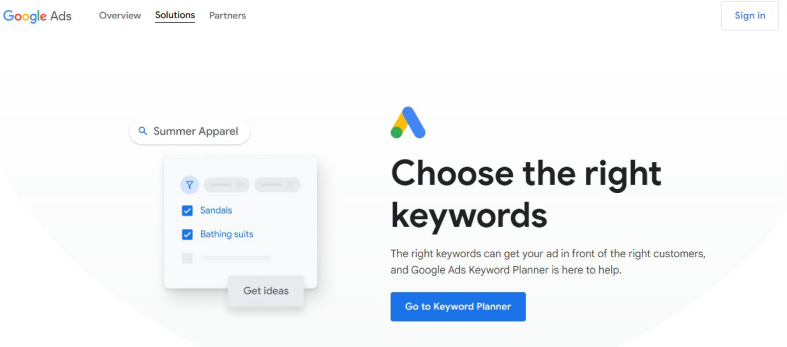
- Overview: Google's own keyword research tool, Keyword Planner, provides a foundational understanding of keyword search volume and competition directly from the search giant itself. It's a great starting point, especially for those on a budget or new to SEO.
- Key Features:
- Keyword ideas and suggestions
- Search volume and trends
- Competition level
- Ad group ideas
- Historical data and forecasts
- Pros:
- Free to use (with a Google Ads account)
- Provides valuable insights directly from Google
- Offers keyword ideas, search volume, and competition data
- Integrates seamlessly with other Google tools
- Cons:
- Search volume data can be broad and less precise
- Limited features compared to paid tools
- Requires an active Google Ads campaign for detailed data
- Cost: Free
2. Semrush
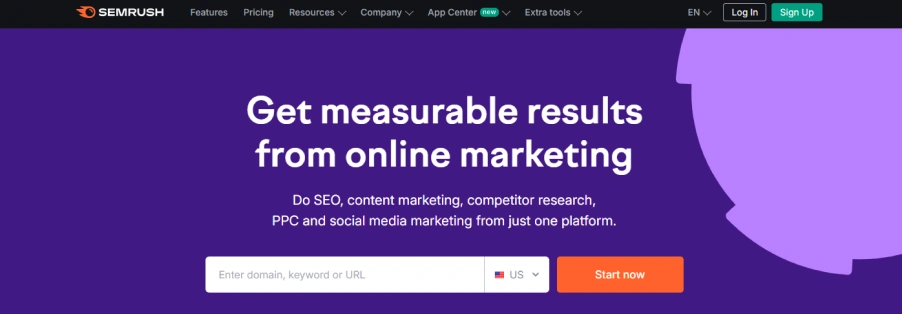
- Overview: Semrush is an all-in-one digital marketing suite with a robust keyword research tool set. It's a popular choice for agencies and SEO professionals looking for in-depth keyword data, competitor analysis, and comprehensive SEO insights.
- Key Features:
- Keyword Magic Tool for extensive keyword ideas
- Keyword Gap analysis to uncover competitor opportunities
- Position Tracking to monitor keyword rankings
- Organic Traffic Insights for website performance data
- Pros:
- Comprehensive keyword research capabilities
- Competitive analysis tools
- Site audit and backlink analysis
- Content marketing and social media features
- Cons:
- Can be expensive for smaller agencies and freelancers
- The learning curve can be steep
- Cost: Plans start at $139.95 per month
3. Ahrefs
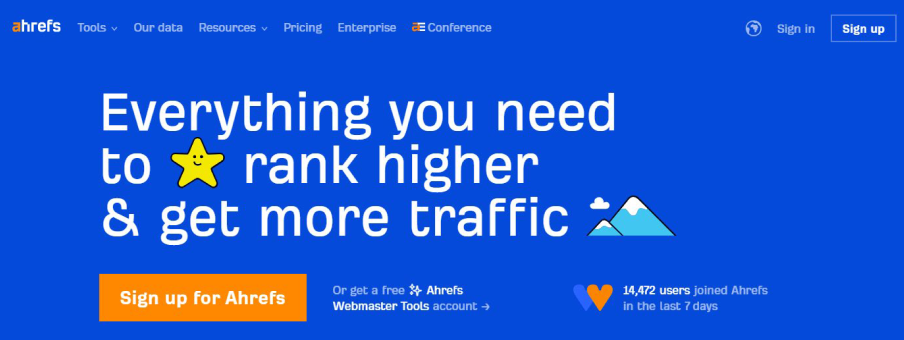
- Overview: Ahrefs is renowned for its backlink analysis capabilities, but it also offers a powerful suite of keyword research tools. Its extensive database and focus on data accuracy make it a favorite among SEO experts.
- Key Features:
- Keywords Explorer for keyword ideas, search volume, and difficulty
- Site Explorer to analyze backlinks and organic search performance
- Content Explorer to find trending topics and content ideas
- Rank Tracker to monitor keyword rankings
- Pros:
- Powerful backlink analysis
- Robust keyword research tools
- Site Explorer for in-depth website analysis
- Content Explorer to discover top-performing content
- Cons:
- Can be expensive
- The user interface may feel overwhelming for beginners
- Cost: Plans start at $129 per month
4. Moz
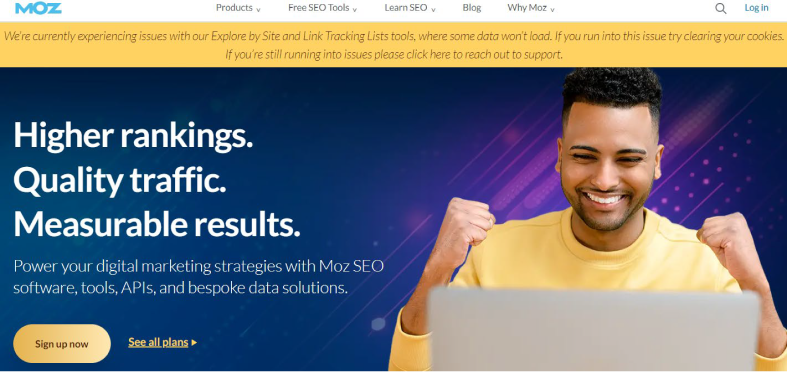
- Overview: Moz is a well-established name in the SEO world, known for its user-friendly interface and comprehensive suite of SEO tools. Its keyword research toolset offers a balance of functionality and ease of use.
- Key Features:
- Keyword Explorer for keyword research and SERP analysis
- Link Explorer to analyze backlinks and domain authority
- On-page Grader to improve website optimization
- Rank Tracker to track keyword rankings
- Pros:
- User-friendly interface
- Comprehensive keyword research tools
- Link Explorer for backlink analysis
- On-page optimization recommendations
- Cons:
- Keyword database can be less extensive than competitors
- Some features may feel less advanced
- Cost: Plans start at $49 per month
5. Ubersuggest
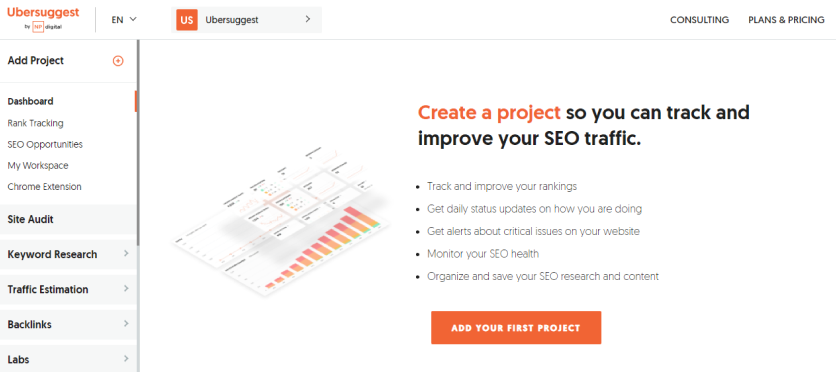
- Overview: Ubersuggest, founded by Neil Patel, provides a budget-friendly option for keyword research and SEO analysis. Its intuitive interface and focus on core features make it an attractive choice for smaller businesses and individuals.
- Key Features:
- Keyword Overview for keyword ideas and metrics
- Keyword Ideas for related and long-tail keywords
- Content Ideas to discover trending topics
- Site Audit to analyze website health
- Pros:
- Affordable pricing
- User-friendly interface
- Provides keyword ideas, search volume, and competition data
- Offers site audit and backlink analysis
- Cons:
- May lack some advanced features compared to premium tools
- Keyword database may be less extensive
- Cost: Business plans start at $20 per month
Choosing the Right Tool
The "best" keyword research tool for you depends on several factors:
- Budget: Consider your financial resources and choose a tool that fits within your budget.
- Features: Evaluate the features each tool offers and prioritize those that align with your specific needs.
- Ease of Use: If you're new to keyword research, opt for a tool with a user-friendly interface.
- Data Accuracy: Prioritize tools that provide reliable and up-to-date keyword data.
- Integration with your CRM: If you're using a CRM with SEO functionality, like DAXRM, consider whether the keyword research tool integrates seamlessly to enhance your overall customer understanding and content strategy.
The Way Forward
Keyword research remains an essential practice for anyone involved in digital marketing and SEO. The tools listed in this guide represent some of the best options in 2024. Remember, effective keyword research involves more than just finding keywords; it's about understanding your audience, aligning your content with their needs, and strategically targeting keywords to achieve higher visibility in search results. By selecting the right tool and employing sound keyword research practices, you can unlock new opportunities, drive organic traffic, and achieve your marketing goals.
Bonus Tips
- Don't Rely on One Tool: It's often beneficial to use multiple tools to get a broader perspective on keyword data.
- Focus on Intent: Understand the intent behind keywords (informational, navigational, transactional) to create relevant content.
- Long-Tail Keywords: Target long-tail keywords for less competition and more targeted traffic.
- Stay Updated: Search engine algorithms evolve constantly. Keep abreast of latest trends and best practices.
- Leverage Your CRM: Utilize your CRM data to identify customer pain points and frequently asked questions, which can inform your keyword research and content creation.
Remember!
Keyword research is an ongoing process. By continually refining your strategy and using the right tools, you can stay ahead of the curve and ensure your content reaches the right audience at the right time.


